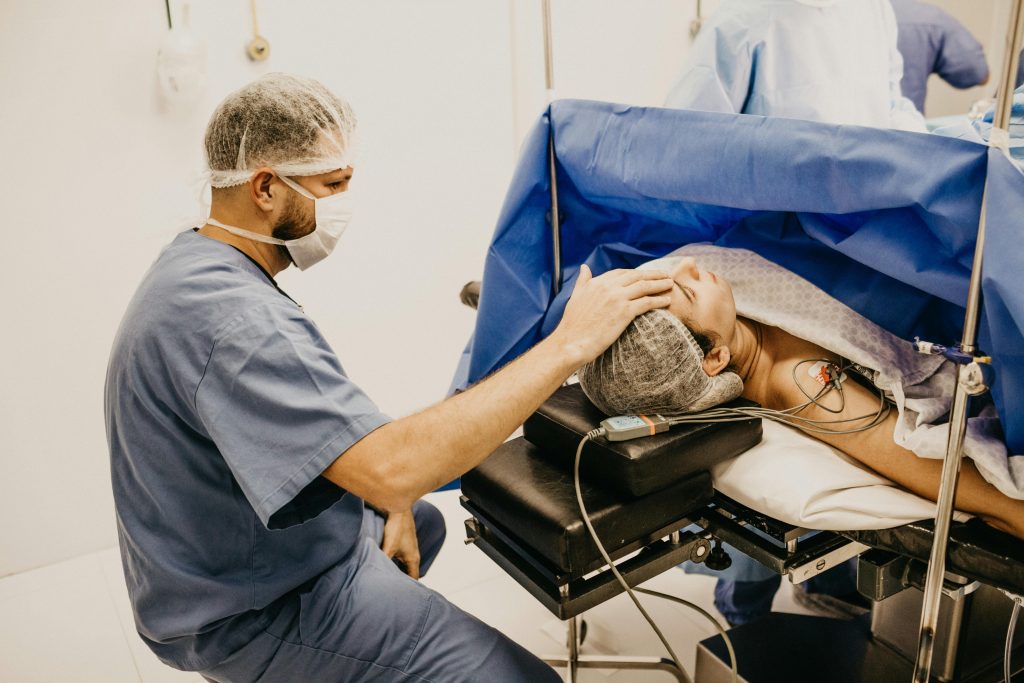In essence, hospital logistics manages all supplies, equipment, and medical tools in the backstage setting, which enables doctors and nurses to perform their duties effectively. From drug delivery to room organization, logistics is in every inch. It has an immediate effect on the speed and safety of patient care.
What happens if the surgery tools are delayed for a couple of hours or if the medicine runs out? Too often, patients are the ones who suffer, causing delays and safety concerns to drop. This is why a strong hospital logistics system is not an option; it’s life and death. Smartly, unused surplus surgical supplies can make all the difference.
When a hospital manages its inventory appropriately, it results in faster and better care for patients. Improved logistics reduce the risk of error and cut costs. During crisis periods, even an extra surplus of surgical supplies becomes critical in saving lives and enhancing outcomes.
Why Hospital Logistics Matter
Hospital logistics ensures that everything runs smoothly at the back end. They provide doctors with the tools on time. Patients receive faster care with fewer delays.
Good logistics reduce waste and save costs. Proper handling of surplus surgical supplies boosts efficiency. It’s the hidden power that protects patient safety every day.
How Logistics Affects Patient Care and Safety

Hospital logistics directly impact how quickly and safely patients get treated. Well-managed surplus surgical supplies ensure smooth, life-saving care.
1. Efficient Inventory Management Saves Lives
Efficient inventory management ensures critical tools are ready when needed. It avoids treatment delays and saves precious time. Managing surplus surgical supplies helps reduce waste and boost care quality. A well-stocked system can truly save lives in emergencies.
2. Timely Availability of Surplus Surgical Supplies
Operational surplus surgical supplies, when used at the right moment, can save a life in emergencies; thus, they prevent a delay in surgeries and facilitate timely interventions.. Well-managed surplus means hospitals stay ready at all times. This smart approach boosts both safety and patient care.
The Cost of Poor Coordination
Poor coordination in hospitals causes stress,delays, and wastage of resources. It quietly damages both patient care and overall efficiency.
- Supplies, such as surplus surgical supplies may be over-ordered or expire unused.
- Treatment delays occur when departments fail to share information promptly.
- Wasted budgets due to duplicate purchases and poor inventory control.
Key Components of a Strong Hospital Logistics System
A robust logistics system ensures hospitals operate smoothly. It uses smart tracking, fast communication, and trained staff. Proper handling of surplus surgical supplies helps prevent waste and enhances patient care. These key parts ensure patients get what they need, on time.
1. Smart Inventory Software
Modern tools help hospitals:
- Track item usage
- Monitor expiry dates
- Predict future demand
2. Real-Time Tracking Systems
With barcoding or RFID, hospitals can instantly know:
- What item is where
- Who used it
- When it needs replenishing
3. Surplus Redistribution Protocols
Instead of letting surplus surgical supplies expire, hospitals can:
- Donate them to low-resource departments
- Shift them to high-demand units
- Partner with other facilities in need
4. Trained Logistic Staff
Just like nurses need training, so do logistics professionals. Skilled staff can prevent:
- Stock-outs
- Over-purchasing
- Human errors
Real-World Example: Logistics Impact in Emergency Rooms
Every second counts in emergency departments. The faster the logistics, the quicker the treatment rendered and the safer the care given.
During the coronavirus pandemic, hospitals with good systems never ran out of PPE, oxygen, or surgical supplies. Patients got help faster with fewer delays. This shows how smart logistics can save lives.
Pain Points in Current Hospital Logistics
Many hospitals face delays, missing tools, and poor supply tracking. Staff waste time searching instead of caring. Mismanaged surplus surgical supplies lead to costly waste. These gaps hurt both patient safety and staff performance.
For Patients:
- Long ER wait times
- Postponed surgeries
- Lack of available beds or equipment
For Staff:
- Overwhelming manual tracking
- Searching for supplies during emergencies
- Burnout due to inefficient systems
How to Improve Hospital Logistics

To improve hospital logistics, use smart inventory tools and clear systems. Train staff for better coordination. Track and manage surplus surgical supplies before they expire. These steps save time, reduce waste, and boost patient care.
Conduct Regular Audits
- Spot underused or expired supplies
- Monitor stock levels accurately
Automate Where Possible
- Use software to reorder supplies before they run out
- Automate alerts for expiry dates
Improve Communication Between Departments
- Weekly logistics meetings
- Centralized supply dashboards
Prioritize Surplus Surgical Supplies Management
- Create dedicated storage zones
- Label, categorize, and monitor usage
- Donate or reassign before expiry
Future of Hospital Logistics: AI and Automation
The future of hospital logistics is smart and automated. AI will predict demand before shortages happen. Robots will deliver tools to rooms quickly.
Tracking systems will monitor every item in real time. Surplus surgical supplies will be managed with zero waste. This tech shift means faster care and safer hospitals.
Final Thoughts
Hospital logistics play a silent and powerful role in saving lives. They ensure timely care and reduce critical delays. Strong systems boost staff performance and patient trust.
Managing surplus surgical supplies smartly avoids waste and improves readiness. With better coordination and tech tools, care becomes faster and safer. Hospitals must see logistics as a life-saving priority.
FAQ’s
What Are The Factors Affecting Patient Safety In Hospitals?
Poor communication, low staff, and delayed medical logistics directly affect patient safety.
Why Is Medical Logistics Important?
It ensures the right tools and surplus surgical supplies reach patients at the right time.
How Do The Operations Of A Healthcare Delivery System Impact Patient Care Access?
Efficient systems reduce wait times and improve timely access to quality care.
How Do Human Resource Practices Impact Patient Safety?
Trained, well-managed staff reduce errors and enhance safe patient outcomes.




















